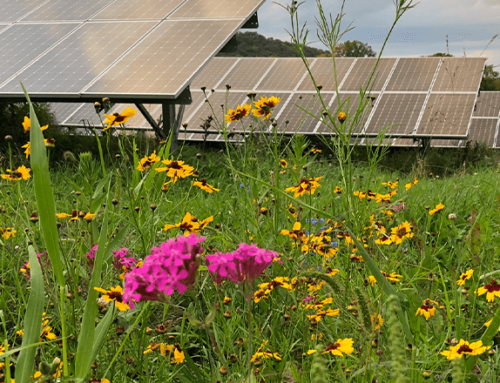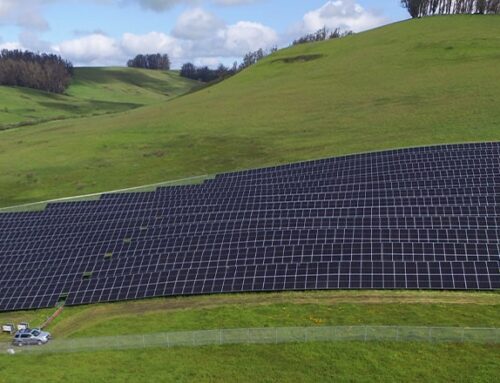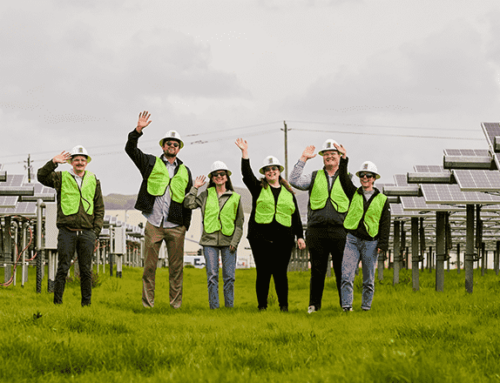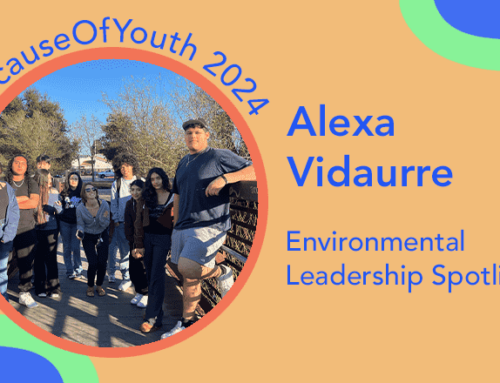In honor of Earth Month in April, this blog covers the reasons to be a climate optimist and how you can make a positive impact, including the following:
● Educating yourself
● Engaging in climate conversations
● Participating in collective action
● Living sustainably
As the impacts of climate change become increasingly visible, it can be easy to become discouraged and feel that the problem is too big to solve. While we don’t want to dismiss the harsh realities of the impacts and injustices associated with climate change, there are reasons to be hopeful about the prospect of creating a sustainable and equitable future for all. As we take action this earth month, optimism can be a helpful tool to bring us together in the fight against climate change.
Why is climate optimism important?
Climate change is often framed in negative terms, focusing on the complexity and scale of the issue and the harsh consequences of inaction. When we feel hopeless, we’re less likely to address a problem. When we believe that change is possible, we’re more willing to put in individual effort, explore the latest ideas, and come together to envision a more sustainable future. Embracing climate optimism can help shift the narrative to one of hope and possibility that inspires action and creates positive momentum.
While the challenges of climate change are large, complex, and urgent, we can already see the impacts of rallying together for a more sustainable future. Over 110 countries, representing nearly 65% of the world’s emissions, have pledged carbon neutrality by 2050. We’ve made significant technological advancements in renewable energy and clean transportation, making more sustainable options more accessible and affordable.
We can also be hopeful about a future led by the next generation of young climate activists who are leading the fight against climate change, ranging from starting community projects to speaking at global climate conferences. While there is still much work left to be done, being hopeful helps us continue our positive momentum in creating a more sustainable future.
What can I do to combat climate change?
When we all work together we have the tools available to effectively reduce emissions and combat climate change. Here are ways you can take action to create more sustainable and equitable communities for future generations.
Educate yourself.
You don’t need to be a climate expert to be a climate activist. Educating yourself is a great place to start. Learning about climate change can help you become a more effective activist and gives you confidence in your climate action journey. Plus, learning about the issues associated with climate change can provide inspiration and help you decide where to focus your efforts. MCE has created these educational resources to help you get started:
- Climate Change Basics
- Climate Change and the Natural World
- Climate Change and Health
- How Does Climate Change Affect My Community?
- What Is Climate Justice?
Engage in climate conversations.
It’s important to discuss climate change. While 72% of Americans believe in climate change, only an estimated 35% discuss it. Talking about climate change is one of the most powerful tools to get people involved in the movement and create collective action. Here are some tips:
- Speak to your family, friends, or other people in your community. Climate experts play a key role in spreading the word, but you have the unique ability to understand the perspectives of those around you.
- Focus on shared experiences. Listen to others and learn how climate issues impact them.
- Provide suggestions for how others can meaningfully get involved and make a positive impact.
- Amplify the voices of your peers and community members when they speak about climate change.
Participate in collective action.
Grassroots networks are a powerful tool to help achieve local and global climate and equity goals. MCE was created from local collective climate action, and as a result over 700,000 metric tons of emissions have been eliminated since 2010. Here are ways that you can get involved in the climate action movement:
- Connect with local organizations that are working to improve the environment.
- Attend a climate march or strike to bring attention to the climate crisis.
- Participate in public town halls and city council meetings and make your voice heard.
- Sign petitions calling for climate action.
- Plan a community event or start a local climate action group.
- Use social media to share climate action tips.
Live sustainably.
Human-created greenhouse gas emissions are the largest contributor to climate change. Simple changes in your daily routine can help combat the climate crisis. Studies show that your sustainable lifestyle choices can influence those around you. Here are some ways to live a more climate-friendly lifestyle and create a ripple effect in your community:
- Choose 100% renewable energy to eliminate your electricity-related carbon footprint.
- Commute sustainably by walking, biking, taking public transportation, or switching to an EV.
- Buy food and products locally to reduce transportation emissions.
- Reduce waste by composting and buying reusable products.
- Improve the energy efficiency of your home.
Support local businesses that run on 100% renewable energy.






